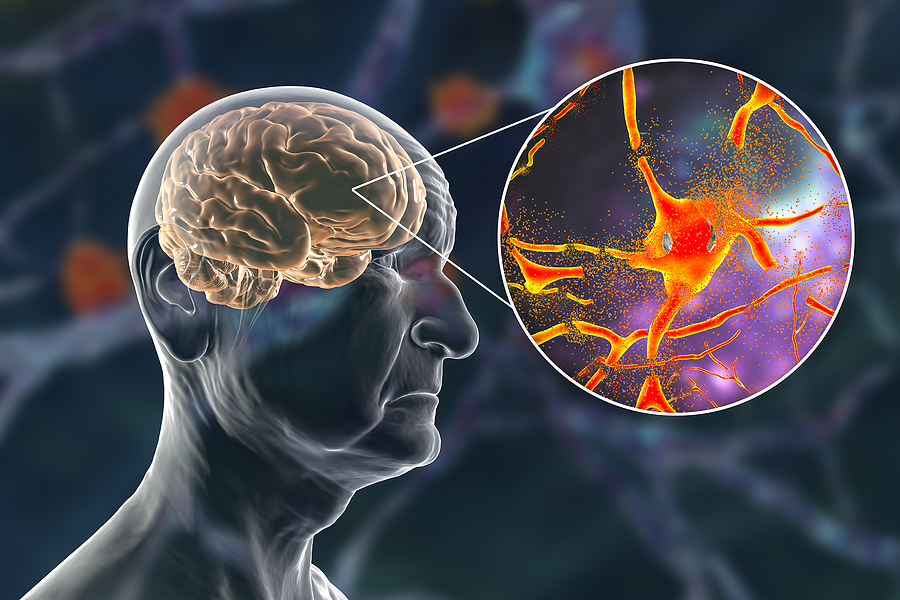
Your brain is the control center of your body. It is responsible for the control and coordination of your body parts. It also controls your speech, vision, movement, memory, and thoughts, and regulates many functions of your body parts. When your brain is healthy, it works efficiently and automatically. However, brain illnesses and diseases can interfere with its normal functioning. If these diseases are not treated in a good time, the results could be devastating.
Brain diseases can be caused due to a variety of reasons, such as infection, stroke, trauma, tumors, and seizures.
Here, we have provided brief information on some of the common brain diseases and their symptoms.
Meningitis: The disease is caused due to inflammation of the lining around the brain or spinal cord. The condition is usually caused due to infection. Symptoms of meningitis include stiffness in the neck, fever, headache, and confusion.
Seizure: Epilepsy is a common seizure disease, a condition which is characterized by recurring seizures caused due to excessive and abnormal electrical activity in the brain. The condition can be caused due to head injuries, brain infections, and stroke.
Trauma: A brain injury can cause a temporary disturbance in the normal functioning of your brain. Traumatic head injuries may cause concussions that may result in headache, and also cause problems with memory and concentration.
Tumor: It’s abnormal tissue growth inside your brain. The growth can be cancerous (malignant), or non-cancerous (benign). A tumor in your brain would cause problem in the normal pressure in the brain, and also cause pain to the patient.
Stroke: The blood to an area of your brain stops suddenly, and the affected tissue begins to die. As such, the body part controlled by that part of the brain, such as hand, or leg, may no longer function normally. Stroke may cause speech, sensation and vision problems in the affected individual.
Parkinson’s disease: This neurodegenerative condition is caused when nerves in the central nervous system (CNS) begin to degenerate slowly. The patient begins to experience problems in the movement and coordination. Early signs of tumors include tremor of the hands, slowness of the movement, stiffness of the limbs and trunk, and unstable posture.
Alzheimer’s disease: This progressive, neurodegenerative disease occurs when nerve cells begin to die. The patient will have impaired memory, restlessness, confusion, impaired communication, inability to follow directions, and impaired judgement.
Huntington’s disease: This inherited nerve disorder causes degeneration of the nerve cells. The patient will find it difficult to control movements. Early signs of Huntington’s disease include irritability, mood swings, and depression.
Migraine: This neurological disorder is characterized by intense pain in one part of the brain that can radiate to other parts. The symptoms of migraine include headache, nausea, dizziness, sensitivity to light and sound, sensory disturbance. Women are three times more likely to be diagnosed with migraine than men.
Diagnosing brain diseases
A neurological specialist or the primary care physician may diagnose your brain disorder. The doctor is likely to perform a neurological exam on the patient to check their balance, hearing, and vision. They may also get radiological images, such as MRI, CT or PET scan of your brain, to diagnose the problem. The doctor might need to study fluid from the patient’s brain and spinal cord. This study will help them in ascertaining bleeding in the brain, the extent of infection, and other abnormalities.
Treatment of brain diseases
Treatment of brain diseases includes surgery in which tumor is surgically removed. Radiation therapy uses high energy beams, such as X-rays or photons, to kill tumor cells. External beam radiation focuses just on the area of the brain where the tumor is located. Chemotherapy uses drugs to kill tumor cells. For psychological problems, you may need to consult a psychiatrist. Depending upon your needs, your doctor may suggest you physical therapy, occupational therapy, or speech therapy, after the treatment.
Get your custom health insurance plan
Brain and other diseases can be very expensive and cost-prohibitive for your employees. Health insurance can help offset the costs for their brain and other diseases. PrudentRx Program has experts who can devise custom health plan for your employees so that they are able to get the maximum benefits from CVS copay optimization and PrudentRx drug list. PrudentRx FAQs is a rich source for you to get useful information about your custom healthcare plan needs.
